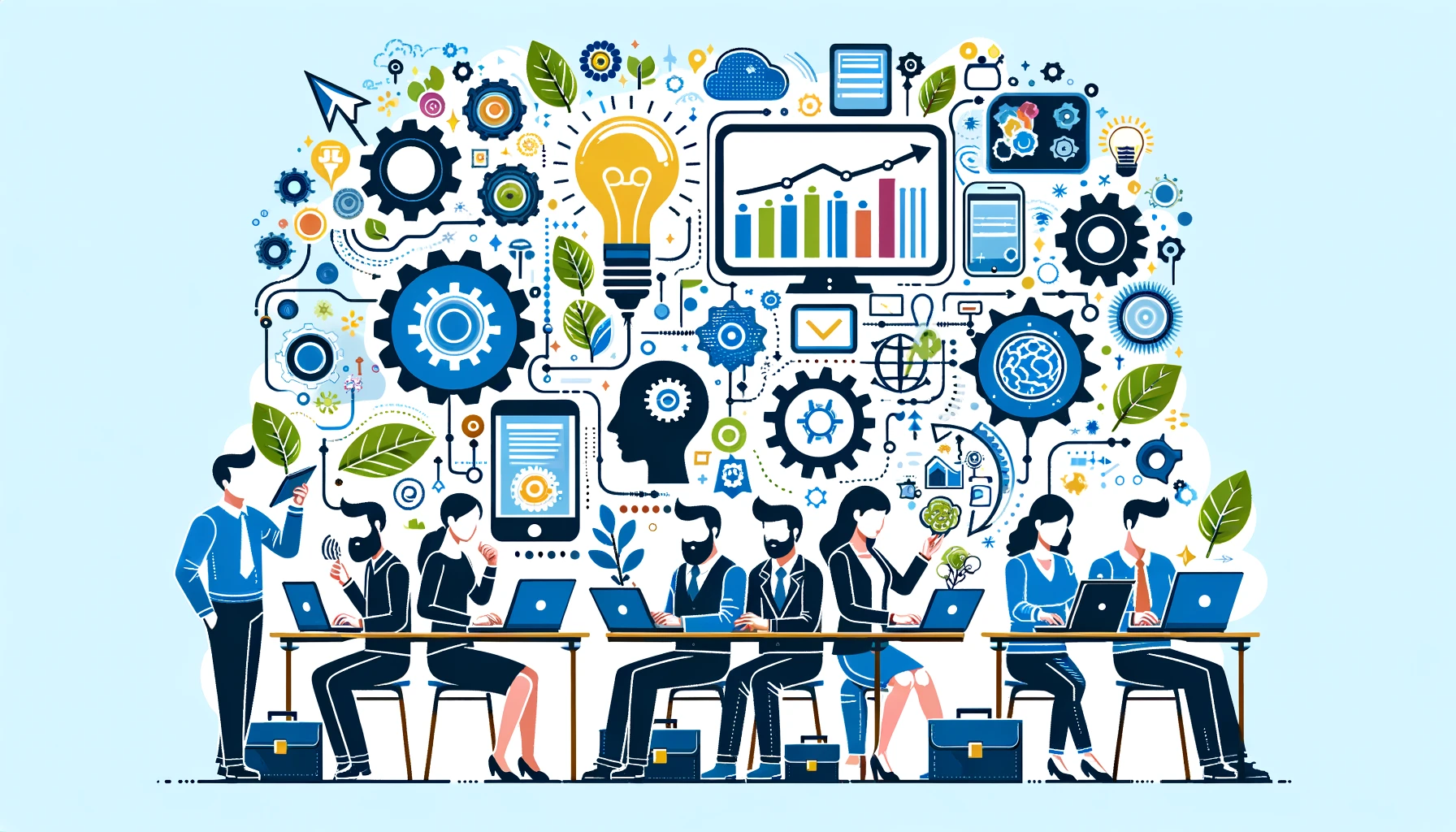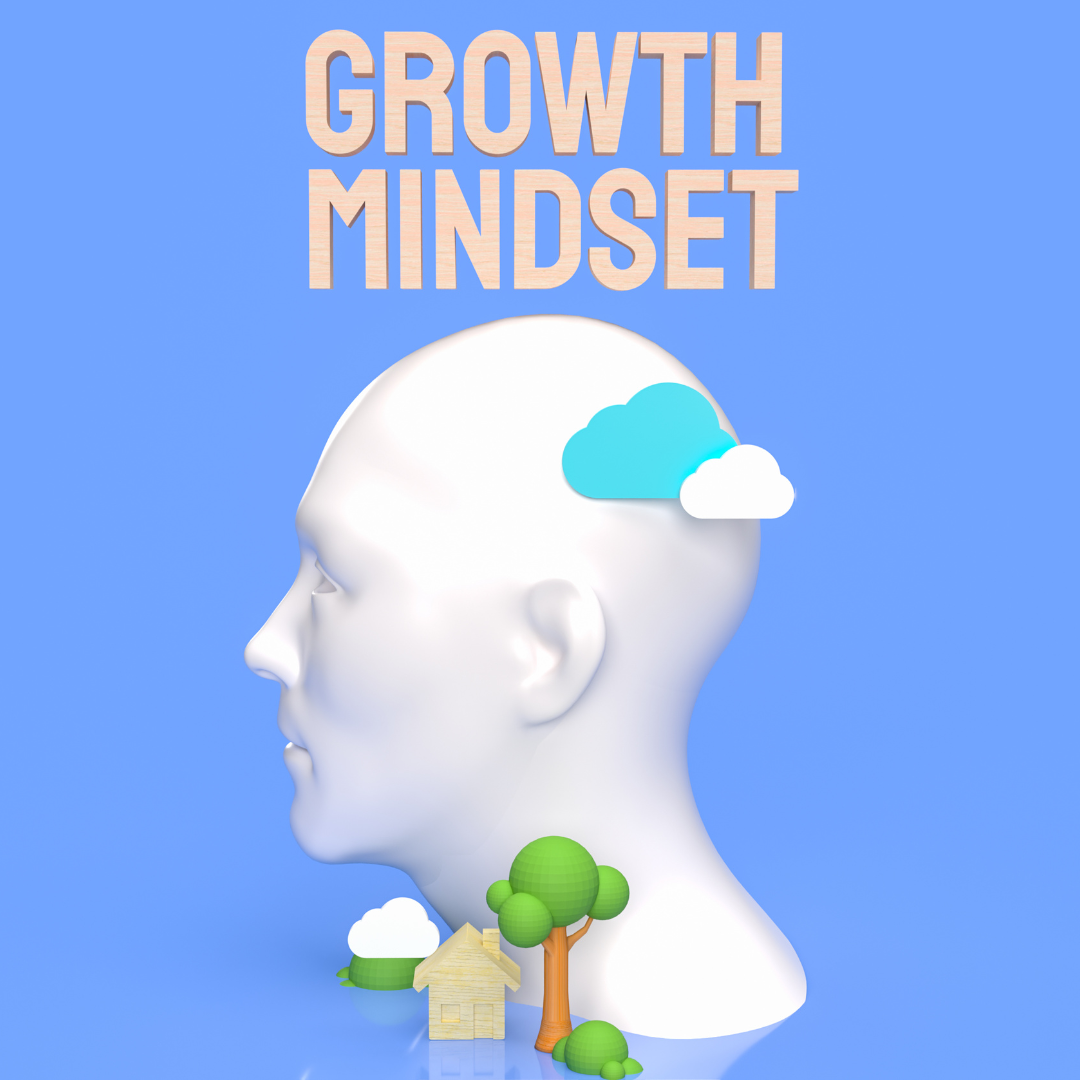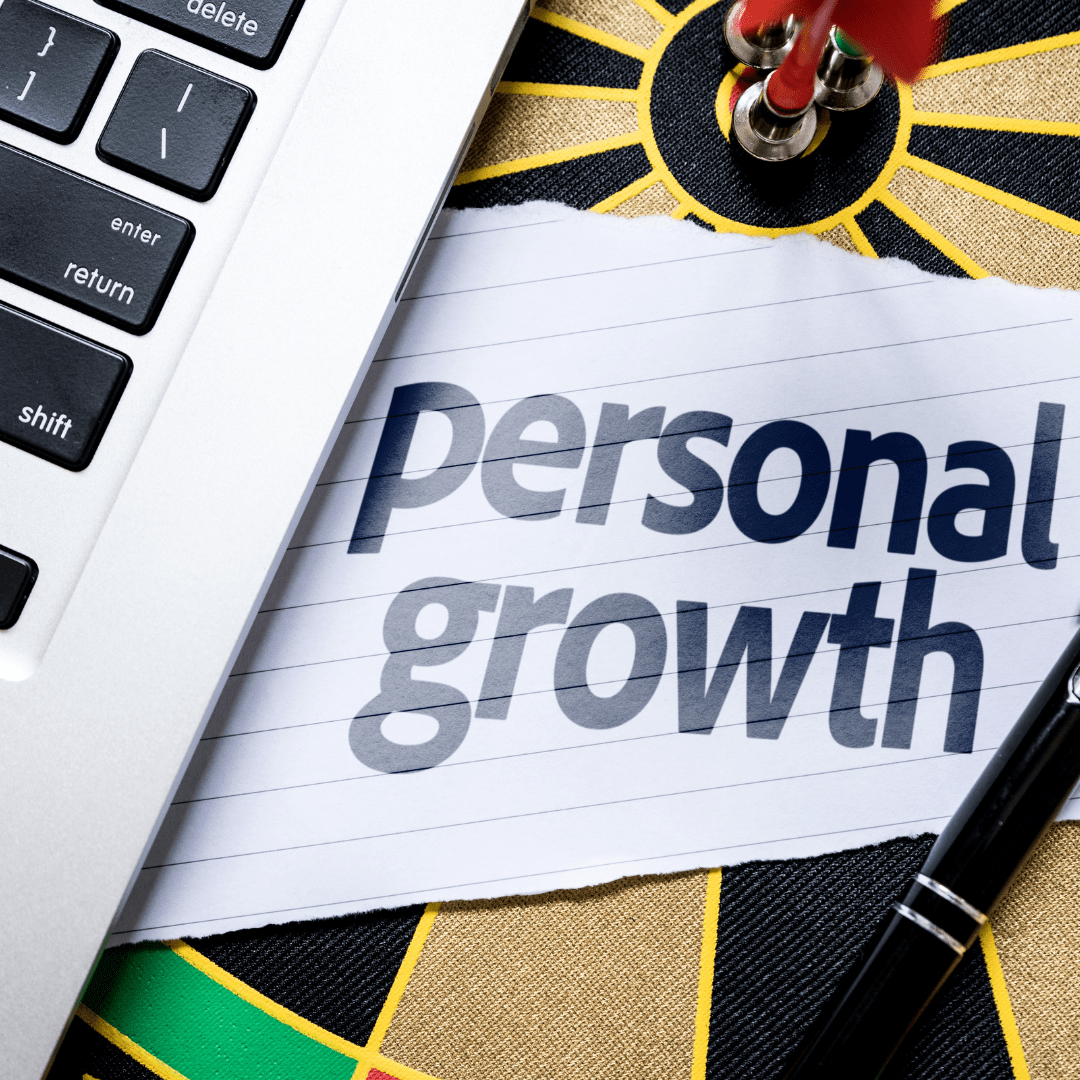Introduction to Growth Mindset
In a world brimming with opportunities and challenges, your mindset can make all the difference between thriving and merely surviving. Welcome to the journey of cultivating a growth mindset for success—a journey that promises personal and professional growth, resilience, and a deeper understanding of yourself and those around you.
Defining Growth Mindset
So, what exactly is a growth mindset? At its core, a growth mindset is the belief that abilities and intelligence can be developed through dedication and hard work. It’s about understanding that your potential is not fixed; it can be cultivated and expanded over time. With a growth mindset, you’re more likely to embrace challenges, persevere through setbacks, and view failures as opportunities for learning and growth.
Importance in Success
Now, you might be wondering why this mindset matters so much. Well, the link between a growth mindset and success is profound. People with a growth mindset tend to approach life with a sense of curiosity and resilience. They’re more likely to take risks, learn from their mistakes, and adapt to changing circumstances. In essence, they are better equipped to tackle the ups and downs of life’s journey.
The Psychology Behind a Growth Mindset
In our previous section, we embarked on the exciting journey of understanding the essence of a growth mindset. Now, let’s dive deeper into the psychology behind it.
Fixed vs. Growth Mindset: A Closer Look
To fully appreciate the power of a growth mindset, it’s essential to grasp the key differences between a fixed mindset and a growth mindset.
- Fixed Mindset: Imagine someone with a fixed mindset as a person who believes that their abilities are set in stone. They tend to think, “I’m either good at this, or I’m not.” For them, challenges are often seen as threats to their self-esteem. They may avoid trying new things or taking risks because they fear failure.
- Growth Mindset: Conversely, individuals with a growth mindset view their abilities as a journey rather than a destination. They believe that they can improve with effort and perseverance. Challenges, in their eyes, are opportunities to learn and grow. They’re more likely to embrace new experiences and bounce back from setbacks.
Neurological Aspects: Rewiring Your Brain
Now, let’s talk about the exciting neurological aspect of a growth mindset.
- Neuroplasticity: The human brain is a remarkably adaptable organ. It can form new connections and rewire itself throughout our lives, a phenomenon known as neuroplasticity. When you cultivate a growth mindset, you’re not just changing your thoughts; you’re rewiring your brain to become more open to learning and change.
- The Power of Yet: In the world of a growth mindset, the word “yet” holds immense significance. Instead of saying, “I can’t do this,” you might say, “I can’t do this yet.” That simple addition—yet—implies that your abilities are a work in progress. It’s a subtle shift in language, but it can have a profound impact on your mindset and, consequently, your actions.
Understanding these psychological and neurological underpinnings of a growth mindset is crucial because it sets the stage for practical strategies you can use to cultivate this mindset in your own life.

Cultivating a Growth Mindset for Personal Development
In the previous sections, we dived deep into the psychology behind a growth mindset, understanding how it differs from a fixed mindset and the fascinating concept of neuroplasticity. Now, it’s time to roll up our sleeves and explore practical steps you can take to cultivate a growth mindset for personal development.
Steps to Develop a Growth Mindset
- Embrace Challenges: Challenges are your ticket to growth. Seek out opportunities that push you out of your comfort zone. Whether it’s learning a new skill, taking on a challenging project, or trying something entirely unfamiliar, challenges are the catalysts for personal development.
- Cultivate a Love for Learning: Develop a thirst for knowledge. Read, explore, and expand your horizons. A growth mindset thrives on curiosity and a passion for continuous learning.
- View Failure as Feedback: Shift your perspective on failure. Instead of seeing it as a dead-end, consider it valuable feedback. Ask yourself, “What can I learn from this experience?” Embracing failure as a stepping stone to success is a hallmark of a growth mindset.
- Effort and Persistence: Understand that effort is the path to mastery. When faced with a task, approach it with determination and perseverance. A growth mindset doesn’t shy away from hard work; it revels in it.
- Learn from Others: Surround yourself with people who embody a growth mindset. Observe how they approach challenges and setbacks. Engaging in conversations with them can provide valuable insights and inspiration.
Overcoming Limiting Beliefs
Now, let’s address a critical aspect of personal development: overcoming limiting beliefs. We all have that inner critic—the voice that whispers, “You can’t do it.” To cultivate a growth mindset, you must learn to silence that voice.
- Identify Limiting Beliefs: Start by recognizing the beliefs that hold you back. Are there thoughts or assumptions that frequently undermine your confidence?
- Challenge and Reframe: Once identified, challenge these limiting beliefs. Ask yourself for evidence that supports or contradicts them. Often, you’ll find that these beliefs are based on assumptions rather than facts.
- Replace with Empowering Thoughts: Replace those limiting beliefs with empowering thoughts. For example, if you catch yourself thinking, “I’m not good at this,” reframe it as, “I’m still learning, and I can improve with practice.”
- Positive Affirmations: Practice positive affirmations daily. These are concise, uplifting statements that reinforce your confidence and belief in your abilities. Over time, they can reshape your mindset.
Cultivating a growth mindset for personal development is an ongoing journey. It’s about making a conscious choice to approach life with curiosity, resilience, and a commitment to continuous improvement. By following these steps and working on overcoming limiting beliefs, you’ll set the stage for remarkable personal growth.
The Role of Challenges in Fostering Growth
Challenges are not roadblocks; they are the stepping stones to personal and professional growth. In this section, we’ll explore the crucial role that challenges play in cultivating a growth mindset.
Embracing Failure
Failure is a word that often carries a negative connotation, but when viewed through the lens of a growth mindset, it becomes a powerful teacher.
- Redefining Failure: Instead of seeing failure as the end of the road, consider it a detour on your path to success. It’s not a reflection of your abilities but a natural part of the learning process.
- Building Resilience: Embracing failure builds resilience. When you encounter setbacks and keep moving forward, you become stronger and more capable of handling future challenges.
- Learning through Mistakes: Mistakes are valuable lessons in disguise. A growth mindset encourages you to analyze your failures, identify what went wrong, and apply those lessons to future endeavors.

Learning from Setbacks
Setbacks are a common occurrence in both personal and professional life. How you respond to them can make all the difference.
- Analyzing Setbacks: When faced with a setback, take the time to analyze what went wrong. Was it a lack of preparation, a misunderstanding, or an unexpected obstacle? Understanding the root cause is the first step toward improvement.
- Adjusting Strategies: A growth mindset enables you to adjust your strategies based on what you’ve learned. It’s about being flexible and willing to try new approaches.
- Perseverance: Setbacks can be discouraging, but a growth mindset encourages perseverance. Keep your goals in sight, stay motivated, and remember that setbacks are temporary.
Understanding that challenges, failures, and setbacks are all part of the journey to success is a fundamental aspect of a growth mindset. It’s through these experiences that you have the opportunity to grow, learn, and become a more resilient and adaptable individual.
Nurturing a Growth Mindset in Professional Life
In our journey to cultivate a growth mindset for success, we’ve explored its psychology and practical steps for personal development. Now, it’s time to shift our focus to the professional realm and understand how a growth mindset can be a game-changer in your career.
Adapting to Change
In the dynamic world of work, change is a constant. And those with a growth mindset are well-equipped to thrive in this ever-evolving landscape.
- Flexibility: A growth mindset fosters adaptability. Instead of resisting change, you embrace it as an opportunity for growth. You’re more likely to pivot when needed and take on new challenges with enthusiasm.
- Resilience: Change often brings uncertainty and setbacks. A growth mindset equips you with the resilience to bounce back from failures. You view setbacks as learning experiences, not as signs of incompetence.
- Innovation: When you’re open to new ideas and approaches, you’re more likely to contribute to innovation in your workplace. A growth mindset encourages creative thinking and problem-solving.
Continuous Learning
In today’s knowledge-driven economy, the ability to learn continuously is a tremendous asset.
- Skill Development: A growth mindset drives you to acquire new skills. You see skill development as a path to advancement and are willing to put in the effort to acquire them.
- Feedback-Seeking: You actively seek feedback from colleagues and supervisors. Feedback is not seen as criticism but as valuable input for improvement.
- Mentorship: Engaging with mentors and role models becomes a priority. Learning from those who have walked the path before you can accelerate your professional growth.
- Networking: Building a network of professionals from diverse backgrounds allows you to learn from different perspectives and stay updated with industry trends.
A growth mindset in professional life doesn’t just benefit your career; it can also have a positive impact on your workplace. Your willingness to adapt, learn, and innovate can inspire and influence your colleagues and contribute to a culture of growth within your organization.
Strategies for Developing a Growth Mindset in Children
As we journey through the fascinating world of growth mindsets, it’s essential to remember that these mindsets aren’t just for adults. They can have a profound impact on children, shaping their outlook on learning, challenges, and their potential. Let’s explore some effective strategies for instilling a growth mindset in the younger generation.

Encouraging Curiosity
Children are naturally curious, and fostering this curiosity is key to nurturing a growth mindset.
- Ask Open-Ended Questions: Encourage children to ask questions that require more than a simple “yes” or “no” answer. This promotes critical thinking and exploration.
- Exploration and Discovery: Provide opportunities for hands-on learning and exploration. Museums, nature outings, and science experiments can ignite curiosity.
- Praise Effort, Not Intelligence: Instead of saying, “You’re so smart,” praise their effort and perseverance. This teaches them that hard work leads to growth and success.
- Model Curiosity: Children often learn by example. Show your curiosity by exploring new interests and discussing what you’re learning.
Promoting Resilience
Resilience is a crucial aspect of a growth mindset, and it’s something children can develop from a young age.
- Normalize Mistakes: Help children understand that making mistakes is a part of learning. Share your own mistakes and the lessons you’ve learned from them.
- Use Stories: Share stories of famous individuals who faced setbacks but persevered. Highlight how challenges can lead to growth and success.
- Teach Problem-Solving: Encourage children to think critically and solve problems independently. Offer guidance when needed, but allow them to grapple with challenges.
- Provide Support: Be a source of emotional support when they face setbacks. Let them know you believe in their ability to overcome obstacles.
By nurturing curiosity and promoting resilience in children, you’re laying a solid foundation for a growth mindset. These skills will serve them well throughout their educational journey and beyond.
Growth Mindset and Emotional Intelligence
In our quest to understand the far-reaching effects of a growth mindset, we’ve explored its impact on personal development, professional life, and even nurturing the curious minds of children. Now, let’s dive into a fascinating realm where the growth mindset intersects with emotional intelligence, creating a powerful synergy for personal and interpersonal growth.
Self-awareness and Empathy
A growth mindset can significantly enhance self-awareness and empathy, two cornerstones of emotional intelligence.
- Self-awareness: With a growth mindset, individuals are more attuned to their own strengths and weaknesses. They recognize areas where they need improvement and actively seek growth opportunities.
- Empathy: When you understand that abilities and intelligence can be developed with effort, you’re more likely to empathize with others’ struggles. You appreciate that everyone is on their unique journey of growth.
- Conflict Resolution: A growth mindset can aid in resolving conflicts constructively. Instead of blaming or becoming defensive, individuals with this mindset are open to understanding different perspectives and finding mutually beneficial solutions.
Managing Emotions
Emotional intelligence involves not only understanding emotions but also effectively managing them. Here’s how a growth mindset can contribute to emotional management:
- Resilience: Individuals with a growth mindset are better equipped to bounce back from emotional setbacks. They view emotional challenges as opportunities for self-improvement.
- Stress Management: When faced with stress, a growth mindset encourages individuals to seek productive coping strategies. They’re more likely to approach stressors with a problem-solving mindset.
- Positive Outlook: A growth mindset fosters a positive outlook on challenges. This positive perspective can have a ripple effect on emotions, leading to increased optimism and overall emotional well-being.
- Adaptability: Emotional intelligence includes the ability to adapt to changing circumstances. A growth mindset’s emphasis on adaptability aligns seamlessly with this aspect of emotional intelligence.
The connection between a growth mindset and emotional intelligence is clear: both emphasize self-awareness, empathy, and effective emotional management. By nurturing a growth mindset, you’re not only enhancing your cognitive abilities but also your emotional intelligence, making you a more well-rounded and resilient individual.
Enhancing Creativity through a Growth Mindset
Our journey through the world of growth mindsets has taken us through various domains, each highlighting the transformative power of this mindset. Now, let’s explore how cultivating a growth mindset can be a catalyst for enhancing creativity, breaking mental barriers, and encouraging innovation.
Breaking Mental Barriers
A growth mindset paves the way for breaking through mental barriers that often stifle creativity.
- Embracing Challenges: Instead of shying away from difficult problems, a growth mindset individual welcomes them as opportunities to stretch their creativity and problem-solving abilities.
- Risk-Taking: Creativity often involves taking risks and trying new things. A growth mindset provides the courage to venture into uncharted territory, knowing that failures are stepping stones to success.
- Seeing Failure Differently: Instead of fearing failure, individuals with a growth mindset view it as a natural part of the creative process. They understand that many breakthroughs arise from learning and adapting after setbacks.
- Open to Feedback: Creativity flourishes when you’re open to feedback. A growth mindset allows you to accept constructive criticism as a means to improve your creative work.
Encouraging Innovation
Innovation thrives in environments where a growth mindset is prevalent.
- Continuous Improvement: A growth mindset promotes a culture of continuous improvement, where individuals and teams are always seeking better ways to do things.
- Diverse Perspectives: Encouraging different perspectives and ideas is a hallmark of a growth mindset. It recognizes that innovation often arises from the fusion of diverse viewpoints.
- Problem-Solving: Innovators are adept problem solvers. A growth mindset equips individuals with the problem-solving skills needed to address complex challenges and develop innovative solutions.
- Resilience: Innovation is often met with obstacles and failures. A growth mindset’s resilience is a valuable asset in overcoming these challenges and persisting in the pursuit of innovative ideas.
By fostering a growth mindset, you create an environment where creativity can flourish, mental barriers are shattered, and innovation becomes a natural outcome. Whether you’re working on a creative project, leading a team, or simply looking to infuse more innovation into your life, a growth mindset is your ally on this exciting journey.
Growth Mindset in Leadership
In our journey to explore the transformative power of a growth mindset, we’ve seen how it can impact personal development, and professional life, and even foster creativity and innovation. Now, let’s delve into a realm where a growth mindset can make a profound difference: leadership.
Influencing Others Positively
Leaders with a growth mindset have a unique ability to influence others in a positive and empowering way.
- Lead by Example: A growth mindset leader sets the tone by demonstrating their commitment to learning and improvement. When your team sees you embracing challenges and learning from failures, they are more likely to follow suit.
- Encourage Risk-Taking: Leaders who foster a growth mindset encourage their team members to take calculated risks. They create an environment where it’s safe to experiment, knowing that failures are growth opportunities.
- Promote a Culture of Learning: A growth mindset leader prioritizes learning and development within the team. This can involve providing access to training, mentorship, and resources that facilitate growth.
- Acknowledge Effort: Instead of solely focusing on outcomes, recognize and celebrate the effort and hard work put in by your team members. This reinforces the idea that effort is the path to improvement.
Building Teams
A growth mindset is a powerful tool for assembling and nurturing high-performing teams.
- Diverse Perspectives: Leaders with a growth mindset value diversity in their teams. They understand that different perspectives lead to more innovative solutions and better decision-making.
- Conflict Resolution: In teams, conflicts are inevitable. A growth mindset leader uses conflicts as opportunities to strengthen the team’s dynamics, encouraging open and constructive dialogue.
- Feedback-Driven: A growth mindset leader actively seeks feedback from team members and provides it in a way that encourages growth. Feedback is viewed as a tool for improvement, not as criticism.
- Mentorship: Leaders who cultivate a growth mindset often act as mentors, guiding their team members in their personal and professional development. This mentorship can be a powerful motivator.
Leaders with a growth mindset not only bring out the best in themselves but also inspire and empower their teams to reach new heights. They create an environment where learning, adaptability, and collaboration are not just encouraged but celebrated.

The Science of Habit Formation and Growth Mindset
In our exploration of the remarkable impact of a growth mindset, we’ve seen how it can shape personal development, drive professional success, and fuel creativity. Now, let’s dive into the fascinating world of habit formation and understand how it intertwines with a growth mindset.
Creating Lasting Changes
Habits are the building blocks of personal and professional growth, and a growth mindset provides the foundation for creating lasting changes.
- Mindset Shift: A growth mindset entails a fundamental shift in thinking. It’s about believing that you can change and improve. This shift in mindset is essential for initiating and sustaining habit changes.
- Starting Small: When you aim to establish new habits, it’s often best to start small. A growth mindset acknowledges that progress may be slow at first but understands the power of consistency over time.
- Embracing Challenges: Habits can be challenging to establish, but a growth mindset encourages you to embrace those challenges. You understand that setbacks and temporary failures are part of the journey.
- Continuous Improvement: Habit formation aligns perfectly with the concept of continuous improvement. A growth mindset thrives on the idea that you can always become better, making it easier to persevere through the ups and downs of habit-building.
Role of Daily Habits
Daily habits are the driving force behind personal growth and achievement, and they align seamlessly with a growth mindset.
- Consistency: A growth mindset recognizes the power of consistency. Daily habits, no matter how small, accumulate over time to produce significant results.
- Learning: Daily habits can be designed to foster learning and skill development. Whether it’s reading, practicing, or reflecting a growth mindset encourages a daily commitment to improvement.
- Resilience: Habits also contribute to resilience. When faced with challenges or disruptions, having established daily habits can help maintain a sense of normalcy and progress.
- Goal Alignment: Daily habits are aligned with long-term goals. A growth mindset helps you stay focused on the big picture and understand that daily actions contribute to that vision.
By understanding the science of habit formation and intertwining it with a growth mindset, you can create a powerful synergy for personal development and success. You’ll not only initiate positive changes but also sustain them, leading to long-lasting growth and achievement.
Overcoming Obstacles with a Growth Mindset
In our exploration of the transformative power of a growth mindset, we’ve seen how it influences personal development, fosters innovation, and even shapes leadership. Now, let’s journey into the territory of overcoming obstacles, facing fears, and transforming challenges into opportunities.
Facing Fears
A growth mindset equips you with the mental tools to confront your fears and step outside of your comfort zone.
- Fear as a Challenge: Instead of avoiding fear-inducing situations, a growth mindset encourages you to see them as challenges. These challenges are opportunities to learn and grow.
- Embracing Discomfort: Growth often occurs in the discomfort zone. A growth mindset fosters the willingness to embrace discomfort in pursuit of personal development.
- Learning from Failure: Fear of failure can be a significant obstacle. A growth mindset shifts the perspective on failure, allowing you to see it as a valuable learning experience.
- Incremental Progress: When facing fears, a growth mindset acknowledges that progress may be incremental. It understands that each step forward, no matter how small, is a victory.
Transforming Challenges into Opportunities
Challenges are not roadblocks; they are stepping stones to growth and achievement. A growth mindset empowers you to view challenges through a different lens.
- Problem-Solving: Challenges often require creative problem-solving. A growth mindset encourages you to approach challenges with a problem-solving mentality.
- Resilience: Challenges test your resilience. A growth mindset helps you bounce back from setbacks and maintain a positive outlook.
- Adaptability: When you view challenges as opportunities, you become more adaptable. You’re open to different approaches and solutions.
- Mental Toughness: A growth mindset cultivates mental toughness. It teaches you to persevere through adversity and emerge stronger on the other side.
By embracing your fears and reframing challenges as opportunities, you not only overcome obstacles but also pave the way for personal growth and success. A growth mindset empowers you to navigate the often tumultuous waters of life with resilience and determination.
The Impact of Social Environment on Mindset
As we continue our exploration of the remarkable world of growth mindsets, we’ve seen how they influence personal development, professional success, and even resilience in the face of challenges. Now, let’s delve into an often underestimated aspect: the impact of the social environment on mindset.
Influence of Peers
Your social circle, including friends, family, and colleagues, plays a significant role in shaping your mindset.
- Peer Norms: People tend to adopt the beliefs and behaviors of those around them. If your peers have a growth mindset, you’re more likely to develop one as well.
- Support System: Having a supportive network of friends who believe in your abilities and encourage your growth can be a powerful motivator.
- Conversations Matter: Engaging in conversations with peers who have a growth mindset can inspire you and expose you to new ideas and perspectives.
- Accountability: Your peers can hold you accountable for your goals and efforts. This accountability can drive you to persist in your growth journey.
Creating Supportive Networks
Building and nurturing a supportive network is vital for fostering a growth mindset.
- Choose Wisely: Surround yourself with people who uplift and inspire you. Seek out mentors, coaches, or peers who embody a growth mindset.
- Engage in Learning Communities: Join groups or communities that align with your interests and goals. Learning communities provide a rich source of inspiration and knowledge.
- Collaborate: Collaboration with like-minded individuals can lead to innovative solutions and personal growth. Seek out opportunities to work with others who share your growth mindset.
- Share Your Journey: Being open about your growth journey can inspire others and foster a sense of community. Share your challenges, successes, and insights.
Your social environment has a profound impact on your mindset, so it’s essential to surround yourself with individuals who uplift and support your growth. By actively seeking out supportive networks and engaging with peers who share a growth mindset, you create an environment that nurtures your personal and professional development.

Growth Mindset and Goal Setting
As we journey through the intricacies of a growth mindset, we’ve witnessed how it can influence personal development, leadership, and even the impact of social networks. Now, let’s explore the vital connection between a growth mindset and goal setting.
Realistic Goals
Setting realistic and achievable goals is a fundamental aspect of a growth mindset.
- Clear Objectives: A growth mindset starts with a clear understanding of what you want to achieve. Set specific and measurable goals that align with your aspirations.
- Break it Down: Large goals can be overwhelming. A growth mindset encourages you to break them down into smaller, manageable tasks. This not only makes progress more visible but also boosts motivation.
- Embrace Challenges: Goals that stretch your abilities are more likely to foster growth. A growth mindset encourages you to set challenging yet achievable goals.
- Learn from Setbacks: When working toward your goals, setbacks are inevitable. A growth mindset views setbacks as opportunities to learn and adjust your approach.
Tracking Progress
A growth mindset thrives on progress and continuous improvement. Tracking your progress is key to staying on the path of growth.
- Measurement Tools: Use tools and methods to track your progress. Whether it’s a journal, a task-tracking app, or regular assessments, choose a method that works for you.
- Celebrate Milestones: Recognize and celebrate your achievements, even the small ones. This positive reinforcement can boost your motivation and reinforce your growth mindset.
- Adjust and Adapt: Regularly review your progress and be willing to adjust your goals and strategies as needed. A growth mindset is dynamic and open to change.
- Seek Feedback: Don’t hesitate to seek feedback from mentors, peers, or experts. Constructive feedback is valuable for refining your goals and approach.
By setting realistic goals and tracking your progress with a growth mindset, you not only enhance your personal development but also increase your chances of achieving your aspirations. This mindset keeps you focused, resilient, and adaptable in the face of challenges and setbacks.
The Connection Between Growth Mindset and Mental Health
In our journey through the world of growth mindsets, we’ve uncovered their influence on personal development, professional success, and even goal achievement. Now, let’s explore a profoundly important aspect: the connection between a growth mindset and mental health.
Stress Management
A growth mindset equips you with valuable tools for managing stress and maintaining mental well-being.
- Positive Stress Perception: A growth mindset allows you to perceive stress as a challenge rather than a threat. This shift in perception can reduce the negative impact of stress on your mental health.
- Resilience: Individuals with a growth mindset are more resilient in the face of stress. They believe in their ability to cope with challenges, leading to improved mental resilience.
- Problem-Solving: Stress often arises from problems or challenges. A growth mindset fosters problem-solving skills, enabling you to tackle stressors more effectively.
- Healthy Coping Mechanisms: A growth mindset encourages the use of healthy coping mechanisms, such as seeking social support, exercise, or mindfulness, to manage stress.
Positive Thinking
A growth mindset nurtures a positive outlook on life and helps reframe negative thought patterns.
- Optimism: Individuals with a growth mindset tend to be more optimistic. They believe that challenges can be overcome, leading to a more positive overall outlook.
- Reduced Negative Self-Talk: Negative self-talk and self-doubt can harm mental health. A growth mindset challenges these negative thought patterns, replacing them with self-empowering beliefs.
- Resilience to Setbacks: A positive outlook enables you to bounce back from setbacks and failures with greater ease. You view setbacks as temporary and part of the learning process.
- Improved Self-Esteem: A growth mindset boosts self-esteem, as it’s grounded in the belief that you can improve and grow. Higher self-esteem is linked to better mental health.
The connection between a growth mindset and mental health is undeniable. By cultivating this mindset, you can enhance your ability to manage stress, maintain a positive outlook, and build mental resilience. It’s not only about achieving success but also about nurturing your well-being on your journey.
Cultivating a Growth Mindset for Entrepreneurial Success
Our exploration of the powerful impact of a growth mindset has taken us on a journey through personal development, leadership, and even mental well-being. Now, let’s dive into the world of entrepreneurship and understand how cultivating a growth mindset can be a game-changer for success.
Risk-Taking
Entrepreneurship is synonymous with risk, and a growth mindset can provide the courage to embrace it.
- Viewing Risk as Opportunity: A growth mindset reframes risk as an opportunity for growth and learning. Entrepreneurs with this mindset are more willing to take calculated risks.
- Learning from Failure: Failure is a part of entrepreneurship. However, individuals with a growth mindset don’t fear failure; they see it as a stepping stone to success.
- Iterative Improvement: Entrepreneurs with a growth mindset understand that the entrepreneurial journey involves trial and error. They’re open to refining their ideas and strategies based on feedback and results.
- Resilience: The ability to bounce back from setbacks is a hallmark of a growth mindset. This resilience is invaluable in the face of entrepreneurial challenges.
Learning from Failures
In entrepreneurship, failures are not setbacks but valuable lessons.
- Adapting and Pivoting: A growth mindset encourages entrepreneurs to adapt and pivot their strategies when faced with failures or market shifts.
- Reflect and Reframe: Instead of dwelling on failure, individuals with a growth mindset reflect on what went wrong and how to improve. This reflection leads to more informed decisions.
- Perseverance: Entrepreneurs with a growth mindset are more likely to persevere through the inevitable hardships of entrepreneurship. They see each challenge as an opportunity to grow.
- Innovative Thinking: Failure often sparks innovative thinking. A growth mindset fosters creative problem-solving, leading to innovative solutions.
Cultivating a growth mindset is a game-changer for entrepreneurs. It allows you to approach entrepreneurship with courage, resilience, and a deep-seated belief in your ability to learn, adapt, and ultimately succeed.
The Role of Feedback in Shaping a Growth Mindset
As we journey through the expansive world of growth mindsets, we’ve seen how they influence various aspects of personal and professional life, including entrepreneurship. Now, let’s explore a crucial element in the growth mindset journey: feedback.

Constructive Criticism
Constructive criticism is a powerful tool for personal growth, and a growth mindset welcomes it with open arms.
- Learning Opportunity: Individuals with a growth mindset see constructive criticism as an opportunity to learn and improve. They view feedback as valuable guidance.
- Resilience: Constructive criticism can be tough to digest, but a growth mindset equips you with the resilience to handle it. You don’t take it personally; instead, you use it as a stepping stone for growth.
- Problem-Solving: When faced with feedback, a growth mindset encourages problem-solving. You assess the feedback, identify areas for improvement, and develop action plans.
- Embracing Challenges: Constructive criticism often highlights areas where you face challenges. A growth mindset motivates you to embrace these challenges and overcome them.
Seeking Feedback
Actively seeking feedback is a hallmark of a growth mindset.
- Self-Reflection: Individuals with a growth mindset regularly reflect on their performance and actively seek feedback to gain insights into their strengths and weaknesses.
- Open to Different Perspectives: A growth mindset encourages you to be open to feedback from various sources, including peers, mentors, and colleagues. Different perspectives provide a well-rounded view of your performance.
- Continuous Improvement: Seeking feedback is not a one-time event; it’s an ongoing process. A growth mindset fosters a commitment to continuous improvement.
- Feedback Loop: Establishing a feedback loop with those you work with or those who have expertise in your field can be invaluable. Regular feedback discussions lead to quicker growth.
By embracing constructive criticism and actively seeking feedback, you not only accelerate your personal and professional growth but also refine your skills, perspectives, and approaches. It’s a powerful way to evolve and achieve your goals.
Physical Wellness and Growth Mindset
As our journey through the world of growth mindsets continues, we’ve explored how this mindset can enhance personal development, foster resilience, and even drive success in entrepreneurship. Now, let’s turn our attention to a holistic approach to personal growth by examining the profound connection between physical wellness and a growth mindset.
Exercise and Brain Health
Physical activity isn’t just about staying in shape; it also positively impacts your mindset.
- Boosting Brain Function: Exercise enhances blood flow to the brain, promoting better cognitive function and mental clarity. This can help you think more creatively and problem-solve effectively.
- Stress Reduction: Regular physical activity is a powerful stress reliever. It reduces the levels of stress hormones in your body and triggers the release of endorphins, which improve mood and well-being.
- Enhancing Resilience: Exercise teaches discipline and perseverance, qualities that align with a growth mindset. It fosters resilience by challenging you to push through physical barriers.
- Increased Energy: A consistent exercise routine can boost your overall energy levels, enabling you to approach challenges with enthusiasm and focus.
Nutrition and Mindset
Your diet plays a crucial role in shaping your mental and emotional well-being.
- Brain-Boosting Nutrients: Nutrient-rich foods, such as those containing omega-3 fatty acids and antioxidants, support brain health. A nourished brain is better equipped for learning and adapting.
- Balancing Mood: Proper nutrition helps regulate mood. Stable blood sugar levels reduce mood swings and support a positive mindset.
- Gut-Brain Connection: Emerging research suggests a strong link between gut health and mental well-being. A balanced diet supports a healthy gut, which, in turn, influences your mindset.
- Sustained Energy: A well-balanced diet provides sustained energy throughout the day, helping you stay focused and engaged in your growth journey.
A growth mindset extends beyond your mental outlook; it encompasses your overall well-being. By incorporating regular exercise and a balanced diet into your routine, you create a supportive environment for personal growth, resilience, and success.
Growth Mindset in Relationships
In our exploration of the transformative power of a growth mindset, we’ve seen how it influences various facets of life, including personal development, leadership, and physical wellness. Now, let’s delve into the realm of interpersonal relationships and understand how a growth mindset can enhance them.
Effective Communication
Effective communication is at the heart of meaningful relationships, and a growth mindset plays a significant role in this area.
- Open-Mindedness: A growth mindset fosters open-mindedness. You’re more receptive to different perspectives, which improves your ability to understand and connect with others.
- Active Listening: Individuals with a growth mindset tend to be better listeners. They actively engage in conversations, seeking to understand rather than simply respond.
- Constructive Feedback: When communicating, a growth mindset allows you to provide feedback in a constructive and non-critical manner, which promotes trust and mutual growth.
- Conflict Resolution: A growth mindset enables you to approach conflicts as opportunities for resolution and growth, rather than as confrontations to be avoided.
Understanding Differences
Every individual is unique, and a growth mindset helps you appreciate and understand these differences.
- Respect for Diversity: A growth mindset encourages respect for diversity in all its forms, be it cultural, personal, or professional. This fosters a sense of inclusion and belonging.
- Empathy: Understanding differences goes hand in hand with empathy. A growth mindset cultivates empathy, allowing you to connect with others on a deeper level.
- Collaboration: In relationships, whether personal or professional, collaboration is essential. A growth mindset promotes collaboration by valuing the strengths and contributions of each individual.
- Adaptability: As you understand and appreciate differences, you become more adaptable and flexible in your interactions, leading to more harmonious relationships.
A growth mindset doesn’t exist in isolation; it thrives in the context of relationships. By embracing effective communication, open-mindedness, and an appreciation of differences, you create an environment where growth and mutual support flourish.
Cultivating a Growth Mindset in Times of Change
As we continue our exploration of the empowering impact of a growth mindset, we find ourselves facing a topic that is particularly relevant in today’s fast-paced world: adapting to change and uncertainty. Let’s delve into how a growth mindset can help you navigate through these challenging times.
Adapting to New Situations
Change is the only constant in life, and a growth mindset equips you with the tools to adapt to new situations effectively.
- Embracing Change: A growth mindset welcomes change as an opportunity for growth and learning, rather than something to be feared or resisted.
- Flexibility: Individuals with a growth mindset tend to be more flexible in their thinking and approach. They can pivot and adjust when circumstances demand it.
- Learning Orientation: When faced with change, a growth mindset encourages a learning orientation. You seek to acquire new skills and knowledge to thrive in the new environment.
- Positive Attitude: A growth mindset helps you maintain a positive attitude even in the face of uncertainty. You believe in your ability to overcome challenges and adapt successfully.
Staying Resilient
Resilience is a key trait of a growth mindset, and it’s particularly valuable during times of change and uncertainty.
- Bouncing Back: A growth mindset enables you to bounce back from setbacks. You don’t dwell on failures; instead, you see them as stepping stones to future success.
- Maintaining Perspective: When facing uncertainty, a growth mindset helps you maintain perspective. You understand that challenges are temporary and that you can learn and grow from them.
- Problem-Solving: In uncertain situations, problem-solving skills are crucial. A growth mindset encourages creative and innovative problem-solving approaches.
- Self-Belief: Perhaps most importantly, a growth mindset instills a strong sense of self-belief. You have confidence in your ability to adapt, learn, and thrive, no matter the circumstances.
Cultivating a growth mindset during times of change and uncertainty isn’t just about surviving; it’s about thriving. It’s about using these moments as opportunities for personal and professional growth and as stepping stones toward your future success.
Measuring the Impact of a Growth Mindset
In our journey through the realm of growth mindsets, we’ve uncovered how this mindset can enhance various aspects of life, including resilience in times of change and personal relationships. Now, let’s explore the crucial aspect of measuring the impact of a growth mindset.
Assessing Personal Growth
Assessing personal growth is an essential part of cultivating a growth mindset.
- Self-Reflection: Take time to reflect on your journey. Consider where you started and how far you’ve come. Acknowledge the progress you’ve made.
- Set Benchmarks: Establish benchmarks or goals for personal growth. These benchmarks provide a clear picture of your development and areas where you’ve applied a growth mindset.
- Celebrate Achievements: Recognize and celebrate your achievements, no matter how small they may seem. These celebrations reinforce your commitment to growth.
- Feedback Loop: Create a feedback loop by seeking input from mentors, peers, or colleagues. Their perspectives can provide valuable insights into your growth journey.
Recognizing Change
A growth mindset often leads to significant positive changes in your life.
- Behavioral Changes: Look for behavioral changes that indicate a growth mindset. Are you more willing to take on challenges? Do you bounce back from setbacks more quickly?
- Learning Orientation: A growth mindset is marked by a commitment to learning and development. Recognize your increased appetite for learning and acquiring new skills.
- Improved Resilience: If you find yourself handling setbacks with greater resilience and a more positive attitude, it’s a clear sign of a growth mindset at work.
- Impact on Success: Measure the impact of your growth mindset on your overall success. Are you achieving more of your goals? Are you approaching your endeavors with greater confidence?
Measuring the impact of a growth mindset is not just about evaluating your progress; it’s about acknowledging the transformative power of this mindset in your life. It’s a reminder that your commitment to growth is yielding tangible results.

Technology and Growth Mindset
In our exploration of the multifaceted world of growth mindsets, we’ve seen how they can shape personal development, resilience, and even relationships. Now, let’s delve into the realm of technology and understand its evolving role in nurturing and cultivating a growth mindset.
Utilizing Digital Tools
Technology offers a wealth of digital tools that can aid in fostering a growth mindset.
- Online Learning Platforms: Access to a vast array of online courses and learning platforms allows you to acquire new skills and knowledge conveniently.
- Goal-Tracking Apps: Numerous apps are designed to help you set and track your goals. These tools provide a visual representation of your progress, reinforcing your commitment to growth.
- Mindfulness and Meditation Apps: Managing stress and maintaining a positive mindset is easier with mindfulness and meditation apps. They offer guided sessions to help you stay centered and focused.
- Digital Libraries: E-books, audiobooks, and digital libraries grant you easy access to a treasure trove of information, encouraging a learning-oriented mindset.
The Role of Social Media
Social media can be a double-edged sword, but when used mindfully, it can support your growth journey.
- Community Building: Joining online communities or groups focused on personal development and growth can provide you with a supportive network of like-minded individuals.
- Knowledge Sharing: Social media platforms are excellent for sharing knowledge, experiences, and insights. You can learn from others and contribute to the growth of your online community.
- Inspiration and Motivation: Follow individuals or organizations that inspire you and share motivational content. Regular doses of inspiration can keep you motivated on your growth path.
- Accountability: Sharing your goals and progress on social media can hold you accountable. Knowing that others are following your journey can boost your commitment to growth.
Technology, when harnessed effectively, can be a powerful ally in your quest to cultivate a growth mindset. It provides you with access to resources, communities, and tools that support your personal and professional development.
The Future of Growth Mindset
As we’ve journeyed through the expansive landscape of growth mindsets, we’ve seen how they can positively impact personal development, resilience, and even the use of technology. Now, let’s peer into the crystal ball and explore what the future holds for this transformative mindset.
Trends in Education and Business
Growth mindsets are poised to play an even more significant role in education and the business world.
- Inclusive Education: Educational institutions are embracing growth mindsets to create more inclusive learning environments. They recognize that students of all backgrounds can thrive when they believe in their ability to learn and grow.
- Employee Development: In the corporate world, businesses are incorporating growth mindset principles into their employee development programs. This not only fosters individual growth but also drives innovation and adaptability within organizations.
- Cultivating Soft Skills: The future job market will place increasing importance on soft skills such as adaptability, creativity, and emotional intelligence. A growth mindset is essential for developing these skills.
- Leadership Transformation: Effective leadership will require a growth mindset. Leaders who foster a culture of learning and development will be better equipped to guide their teams through change.
Lifelong Learning
Lifelong learning is no longer a choice; it’s a necessity, and a growth mindset is at its core.
- Continuous Skill Acquisition: In a rapidly evolving world, the ability to acquire new skills continuously is invaluable. A growth mindset encourages this attitude.
- Embracing Change: Lifelong learners with a growth mindset not only adapt to change but embrace it. They see change as an opportunity to acquire new knowledge and skills.
- Personal Fulfillment: Lifelong learning isn’t just about professional development; it’s also about personal fulfillment. A growth mindset allows you to explore new interests and passions throughout your life.
- Staying Relevant: To remain relevant in the job market, individuals will need to adopt a growth mindset and commit to ongoing learning and adaptation.
The future of growth mindsets is bright and promising. They are increasingly recognized as a foundational element in personal and professional development, shaping education, business, and the way we approach lifelong learning.
FAQs on Cultivating a Growth Mindset for Success
As we conclude our exploration of the dynamic world of growth mindsets, it’s natural to have questions. Let’s address some frequently asked questions to provide clarity and insights on how to cultivate and harness this transformative mindset for success.
1. What exactly is a growth mindset?
A growth mindset is a belief that your abilities and intelligence can be developed through dedication, hard work, and learning. It’s the opposite of a fixed mindset, which believes that abilities are innate and unchangeable.
2. How can I develop a growth mindset?
Developing a growth mindset involves:
- Embracing Challenges: See challenges as opportunities for growth.
- Learning from Failure: View failure as a chance to learn and improve.
- Seeking Learning: Actively seek knowledge and skills to enhance your abilities.
- Maintaining Persistence: Don’t give up in the face of setbacks; keep trying.
3. Can anyone develop a growth mindset?
Yes, anyone can develop a growth mindset. It’s not dependent on age, background, or current mindset. It’s a choice and a commitment to personal growth.
4. How long does it take to cultivate a growth mindset?
Cultivating a growth mindset is an ongoing process. It takes time and practice to shift your mindset from fixed to growth-oriented. The key is to consistently apply growth mindset principles in your life.
5. What role does self-awareness play in a growth mindset?
Self-awareness is crucial for cultivating a growth mindset. It allows you to recognize your existing mindset, understand your strengths and areas for improvement, and make conscious choices to adopt a growth-oriented outlook.
6. How can I encourage a growth mindset in children?
To nurture a growth mindset in children, provide praise and feedback that focuses on effort and persistence rather than innate ability. Encourage them to embrace challenges, learn from mistakes, and believe in their capacity to improve.
7. Can a growth mindset improve mental health?
Yes, a growth mindset can positively impact mental health. It promotes resilience, reduces stress, and fosters a more positive outlook on challenges, contributing to overall well-being.
8. How can I apply a growth mindset to my career?
In your career, apply a growth mindset by:
- Taking on Challenges: Volunteer for projects that push you out of your comfort zone.
- Seeking Feedback: Actively seek feedback to learn and grow.
- Embracing Lifelong Learning: Continuously acquire new skills and knowledge relevant to your field.
- Maintaining Resilience: Approach setbacks with a positive attitude and a focus on improvement.
9. What’s the connection between a growth mindset and goal setting?
A growth mindset and goal setting go hand in hand. A growth mindset provides the motivation and resilience needed to set ambitious goals, work towards them, and adapt when facing obstacles.
10. Can a growth mindset improve relationships?
Yes, a growth mindset can improve relationships by fostering effective communication, empathy, and a willingness to learn and adapt. It supports understanding and collaboration with others.
Cultivating a growth mindset is a lifelong journey. By understanding its principles and consistently applying them in various aspects of your life, you can unlock your potential, adapt to change, and achieve greater success and fulfillment.

Conclusion: The Lifelong Journey of Growth
As our enlightening journey through the world of growth mindsets draws to a close, let’s take a moment to reflect on the profound impact this mindset can have on your path to success.
A Transformative Companion
- Unleashing Potential: A growth mindset is like a key that unlocks your hidden potential. It empowers you to believe in your ability to learn, adapt, and grow.
- Embracing Challenges: Challenges cease to be intimidating obstacles and become stepping stones for your advancement. Failure becomes a launchpad for success.
- Fostering Resilience: With a growth mindset, resilience becomes second nature. You bounce back from setbacks with a renewed determination to succeed.
A Lifelong Journey
- Never-Ending Growth: The beauty of a growth mindset is that it’s a journey without a final destination. It’s a commitment to continuous learning and self-improvement.
- Adapting to Change: In an ever-evolving world, your growth mindset becomes your compass, guiding you through change and uncertainty with unwavering confidence.
- Building Stronger Relationships: It transforms the way you connect with others. Effective communication, empathy, and understanding of differences become your strengths.
Your Path to Success
- Professional Advancement: In your career, a growth mindset fuels your ambition, enhances your problem-solving skills, and makes you a sought-after asset in any organization.
- Personal Fulfillment: Beyond professional success, it enriches your personal life by enabling you to explore new passions, maintain a positive outlook, and live life to the fullest.
- The Future: As growth mindsets continue to shape education, business, and personal development, your commitment to this mindset ensures that you remain at the forefront of progress.
In conclusion, a growth mindset isn’t just a concept; it’s a life philosophy. It’s a commitment to being the best version of yourself, no matter where you are in your journey. As you cultivate and nurture this mindset, you’re not only investing in your future success but also a life filled with continuous growth, resilience, and fulfillment. So, let this mindset be your lifelong companion, guiding you through the challenges and triumphs that lie ahead, and watch as it transforms your world and leads you to unparalleled success.












